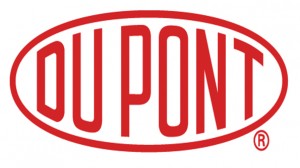
The Environmental Protection Agency (EPA) has announced plans to speed up the process of phasing out and banning the cooling agent used in most cars and refrigerators (HFC-134a).
This isn’t the first of such moves from the EPA. In 1978, the federal environmental agency began banning the use of Freon in the U.S. because the coolant allegedly caused damage to the ozone layer of the atmosphere, in favor of the HFC-134a coolant now facing universal bans from the EPA because of its “greenhouse” impact on the atmosphere.
The new chemical which is already replacing HFC-134a in Cadillacs and other vehicles is a compound known as HFO-1234yf.
There is, however, a peculiar connection between this series of federal bans, the timing of the bans, and the company holding the patents to the substances.
The EPA began banning Freon in 1978 — and DuPont’s patent for Freon expired in 1979. When DuPont invented Freon’s EPA-approved replacement (HFC-134a), they applauded the move to ban Freon. The catch was that, in addition to banning Freon from new development, refrigeration units would need to replace Freon with DuPont’s new HFC-134a.
A generation later, the same environmental alarmists have adopted new environmental scare tactics to create regulations that will profit the same corporate giants. The ozone layer has dropped out of national headlines in favor of global warming-causing “greenhouse gasses” (such as what you’re presently exhaling as you read this). Conveniently, HFC-134a has now been characterized as a very potent “greenhouse gas,” and therefore finds itself in the crosshairs of the EPA and environmental fear mongers everywhere.
But not to the detriment of HFC-creator DuPont. HFC’s proposed replacement (HFO-1234yf) was created by DuPont who now, along with Honeywell, holds a patent on the cooling chemical.
Therefore, EPA and DuPont again find themselves with mutually beneficial goals that are not necessarily better for the American people. Just as the replacement for Freon had detrimental effects on cooling technology, HFO-1234yf faces serious public safety questions, as noted by the Daily Mail in 2013.
Among the concerns, research has pointed out that the new product is toxic, combustible, and extremely dangerous when exposed to a heated engine (say, after a crash).
Auto manufacturers such as BMW and Mercedes Benz, who have been dealing with this issue in Europe, flatly refuse to use the new chemicals in their vehicles.
But none of that is stopping the EPA from moving forward to rewarding DuPont another major payday and putting people at risk for the sake of “environmental protection.”
Tom Toth is the digital content director and a contributing editor for Americans for Limited Government.






